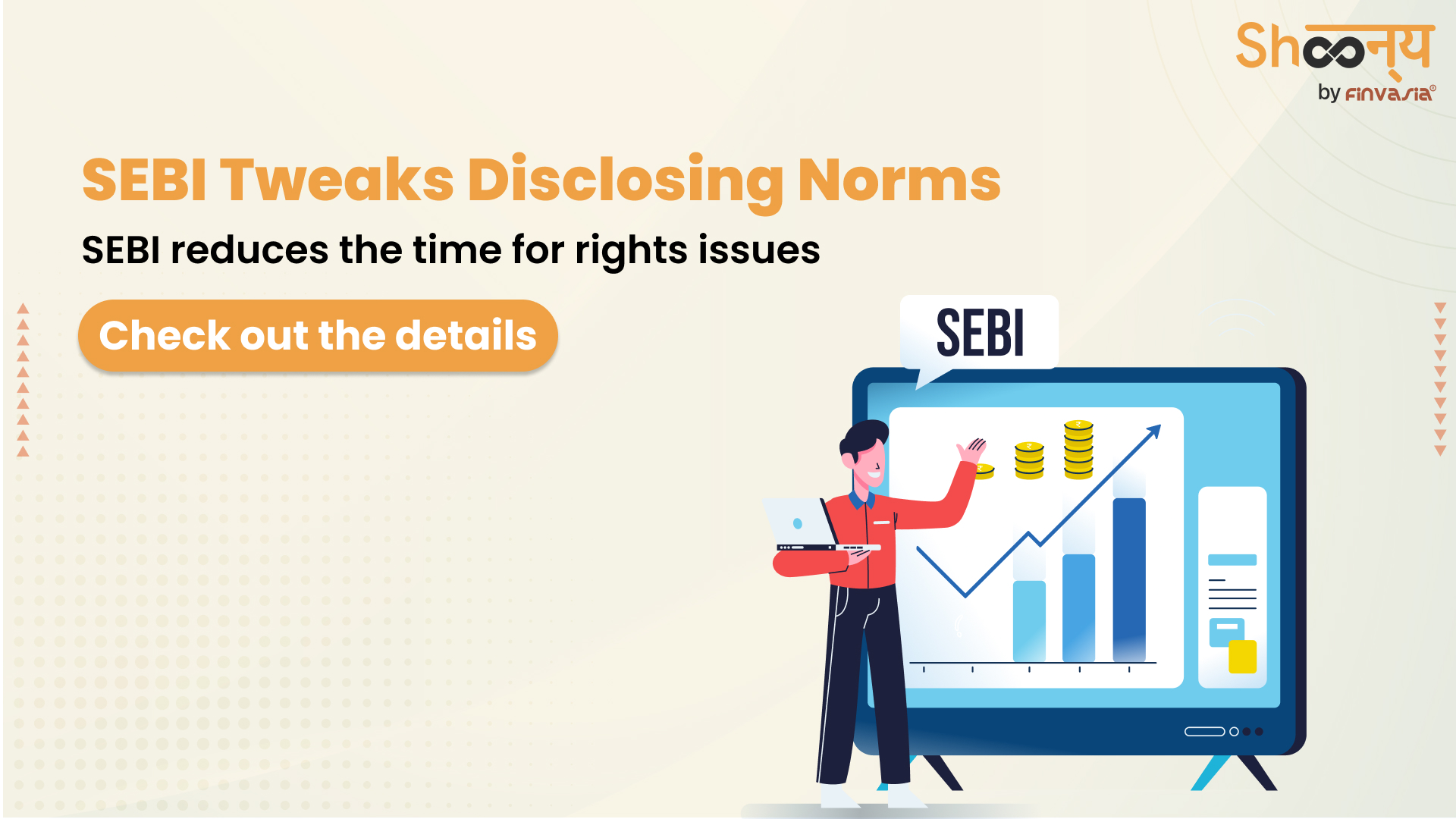SEBI Proposes T+20 days, Simplified Offer Document for Rights Issue

On Tuesday, 20 august 2024, the stock market regulator SEBI came up with a proposal to shorten the processing time for rights issue and simplify the disclosure requirements in the offer document. This aims at making rights issue a viable choice for fundraising for the businesses.
Key proposals by SEBI on Rights Issue
- SEBI has proposed mandatory appointment of an agency, which will be known as ‘monitoring agency’ for supervising the use of capital raised from rights issue of equity shares. Presently, appointing this monitoring agency is only mandatory for the companies which offer equity shares rights issue above ₹ 50 crore.
- At present, there is no particular eligibility criteria for rights issue in India. On this SEBI has proposed that if trading is suspended for any issuer during the period of rights issue, then the issuer will not be eligible to take it further. The issuer and issuer shares will not be eligible anymore for rights issue.
- The market watchdog also proposed that the offer document or the “letter of offer” should be simplified with only the information required by the investors. For instance, the offer document must have purpose of rights issue, record date, price, and entitlement ratio and other relevant information. Currently, the offer document contains wide range of information, which are readily available on the internet, and thus investors for making investment decision only require the crucial information related to the issue.
- SEBI has also proposed that the issuer should mandatorily disclose certain information in the ‘letter of offer’ which includes details of non-compliance, % of complaints solved by the issuer company, if the redressed percentage is lower than 95%, then further details need to be provided and also the issuer needs to disclose any show-cause notice pertaining to this.
- The most pivotal change suggested by the regulator is reducing the timeframe of rights issue. Currently, it takes 317 days and 126 days on an average for non-fast-track rights issue, and fast-track rights issue respectively. SEBI has proposed to bring this timeline down to T+20 days from the date of approval of the rights issue by the board of directors, to the closure of the issue.
- Then SEBI has suggested that the appointment of merchant bankers in a rights issue is not necessary and the issuer should not appoint them. Rather the Registrar of the issue will take care of the activities of the merchant banker along with its task of validation and finalization of the issues.
- In this regard, SEBI has proposed that from now onwards Stock Exchanges and depositories can also validate the application and take part in the finalization of the issue based on allotment.
- Another interesting proposal by SEBI in this regard is relaxing the financial regulation pertaining to renouncing their rights entitlement to selective investors. However, it should be disclosed to the stock exchanges for publishing on their website.
Notion behind the proposals
SEBI has proposed these financial regulations to make rights issue popular fundraising methods. In FY24, it was observed that the fund raised via other ways such as QIP or preferential issue were higher than fund raised via rights issue. Even the number of rights issue was considerably lower than the preferential allotments.
What it means for the investors?
If the offer document of the rights issue is simplified, then more investors will be interested in this as now it is only limited to the preferential shareholders. This would not only help the investors directly, but indirectly as well. The reason is simple and that is if the issue get to raise fund via this method without must hassle, it can help the business grow and thus the return of the investors can grow as well.
Source: TheIndianExpress, Mint
______________________________________________________________________________________
Disclaimer: Investments in the securities market are subject to market risks; read all the related documents carefully before investing.








